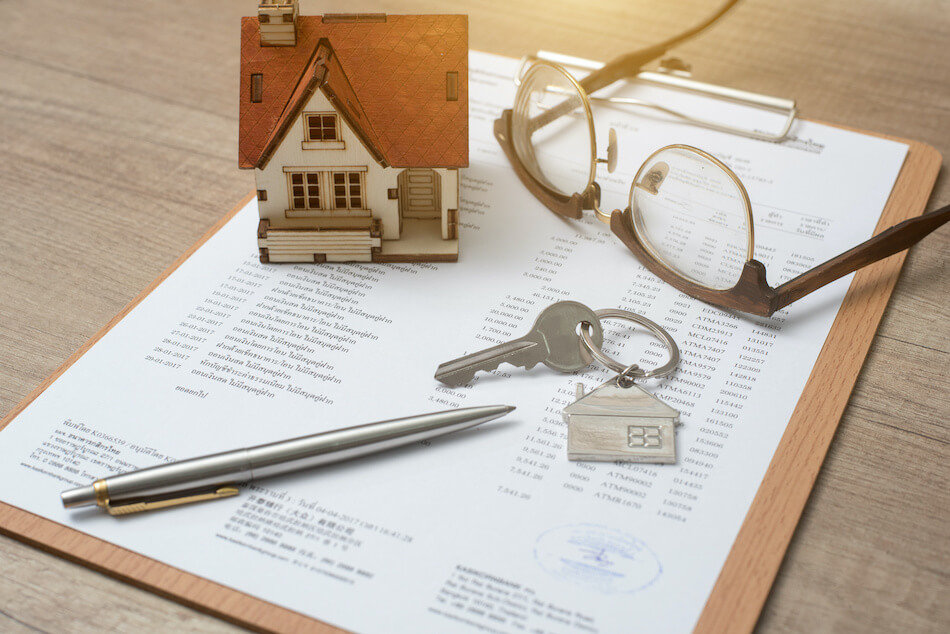How to Sell Your House & Buy a New One at the Same Time
Posted by Justin Havre on Tuesday, May 9th, 2023 at 9:30am.
 Selling a house and buying a new one at the same time can be an intimidating process. It requires planning, organization, research, and the expert help of a great real estate agent to ensure both processes are completed efficiently and effectively. If you want to benefit from the ability to have a smoother transition out of your current home and into your next without the stress of carrying two mortgages or juggling multiple moves, the good news is that it's possible if you know where to start.
Selling a house and buying a new one at the same time can be an intimidating process. It requires planning, organization, research, and the expert help of a great real estate agent to ensure both processes are completed efficiently and effectively. If you want to benefit from the ability to have a smoother transition out of your current home and into your next without the stress of carrying two mortgages or juggling multiple moves, the good news is that it's possible if you know where to start.
Anxious about the home-selling process? Take advantage of our expertise and work with the best real estate teams nationally, right here in Calgary!Sell Your Home With the #1 eXp Realty team in Canada.
Find a Great Real Estate Agent
Working with a professional real estate agent is an important step when selling and buying a house at the same time. When choosing the right real estate agent to sell your home, consider those who are knowledgeable about the current market but also have access to resources that can help sellers get the best price for their homes. Additionally, they can assist buyers in finding suitable properties that fit within their budget and criteria. Luckily, a great agent who understands the nuances of both buying and selling houses simultaneously can help you achieve both.
Assess Your Financial Situation
Assessing your financial situation is of utmost importance when considering selling your current house and buying a new one simultaneously. Having a clear picture of your finances enables you to understand your purchasing power, set realistic expectations, and make informed decisions throughout the process. Here are some key reasons why assessing your financial situation is crucial:
Determining Your Budget
Understanding your financial position is essential in determining your budget for both selling and buying a house. Evaluating your income, savings, debts, and expenses will help you create a home-buying budget. It will also allow you to estimate the potential proceeds from selling your current property, taking into account factors such as outstanding mortgage balances, closing costs, and possible capital gains taxes. Having a clear budget in mind will guide your search for a new home and help you avoid financial strains in the future.
Financing Options
Assessing your financial situation enables you to explore financing options and choose the most suitable one for your needs. If you require a mortgage for the purchase of your new home, understanding your credit score, debt-to-income ratio, and other financial metrics will help you determine the loan amount you qualify for and the interest rates you can expect. Additionally, knowing your financial standing can give you an advantage when negotiating mortgage terms and conditions.
Managing Contingencies
The process of selling and buying a house at the same time involves potential contingencies and uncertainties. Assessing your financial situation allows you to prepare for unexpected costs or delays that may arise during the transactions. Having sufficient financial security or contingency plans in place will provide you with a safety net and reduce the stress associated with any unforeseen circumstances.
Affordability and Long-Term Financial Goals
Buying a new home is a significant financial commitment. Assessing your financial situation helps you gauge the affordability of your desired property in relation to your long-term financial goals. It allows you to consider things such as mortgage payments, property taxes, insurance, maintenance costs, and any other ongoing expenses associated with homeownership. Taking these into account will ensure that your new home aligns with your financial goals and supports your overall well-being.
Minimizing Risks
A thorough financial assessment helps you identify and minimize potential risks associated with buying and selling simultaneously. It allows you to evaluate whether you can comfortably handle the financial obligations of both transactions without putting yourself at risk. Assessing your financial situation empowers you to make informed choices, avoid overextending yourself financially, and maintain stability throughout the process.
Assessing your finances provides a solid foundation for establishing a budget, exploring financing options, managing contingencies, aligning with long-term goals, and minimizing financial risks. By taking a proactive approach to your finances, you can navigate the complexities of the real estate market when buying and selling with confidence and make sound decisions that will be sure to benefit you in the long run.
Research The Market
Once you've analyzed your financials, it's time to research the market and begin understanding what kind of home you can afford. This step in the process requires researching current home listings and getting a clear picture of the housing market in your area. You should start by looking at local newspapers, websites, and your real estate agents' online sites for information on available homes within your price range. Additionally, your real estate agent can prepare a competitive market analysis that can help you both buy and sell.
By familiarizing yourself with available homes that meet your needs, you can make an educated decision about whether now is a good time to buy a new house. Additionally, assessing the condition of comparable houses will help you determine if any repairs are necessary before listing your existing property. If there are multiple offers already placed on certain homes, for example, then this could be an indicator that prices are increasing and suggest that now might not be the best time to purchase another home.
Negotiate The Timeline
Including contingency clauses in your purchase and sale agreements can provide flexibility and protection during both transactions. For example, you can make the sale of your current home contingent upon finding a suitable new home to purchase within a specified timeframe. This allows you to align the timing of both transactions and reduce the risk of being left without having secured a home.
Similarly, you can include a contingency clause in your purchase agreement for the new home, ensuring the sale is dependent on the successful closing of your current property. If a contingency like this might be a good fit for your home buying and selling needs, discuss it with your agent.
Have A Backup Plan
Having a backup plan is important for those looking to buy and sell their homes at the same time. While we all strive for a smooth and seamless transition, unforeseen circumstances can arise, causing delays or disruptions in the process. In the event that happens, there are some key reasons why having a backup plan can help minimize frustrations:
Contingencies in the Real Estate Market
The real estate market can be unpredictable, and various factors can impact the sale or purchase of a property. For example, a potential buyer might back out at the last moment, or the sale of your current home might take longer than expected. Similarly, you might encounter difficulties in finding a suitable new home within your desired timeframe. Having a backup plan in place ensures that you're prepared for contingencies and can navigate unexpected situations without undue stress.
Financing Challenges
Financing your home is an important part of the buying and selling process. However, unforeseen financial hurdles can arise, affecting your ability to get a mortgage or meet the financial requirements of the transactions. For instance, changes in your credit score, job situation, or lending regulations can impact your financing options. Having a backup plan allows you to explore alternative financing sources or adjust your budget accordingly, ensuring that you can proceed with the transactions even in challenging financial circumstances.
Delays in Closing or Moving
Delays in the closing process or moving dates are common in real estate transactions. It could be due to issues with legal documentation, appraisal complications, or even logistical challenges. If you have a strict timeline or specific commitments, such as relocating for a new job or enrollment in a new school, a backup plan can provide you with flexibility and prevent any disruptions to your plans. This could involve arranging for temporary housing, extending your current lease, or exploring other accommodation options until the closing and moving processes are completed.
External Factors
External factors beyond your control, such as natural disasters, changes in personal circumstances, or unexpected life events, can impact the buying and selling process. These factors might make a change in your plans necessary or require you to adapt quickly. Having a backup plan allows you to pivot effectively and minimize the impact on your overall transition.
Peace of Mind
A backup plan provides peace of mind during what can be a stressful and uncertain time. Knowing that you have alternative options and solutions in place reduces anxiety and allows you to navigate any challenges with confidence. It ensures that you can move forward with the transactions while maintaining a sense of control and stability.
You Can Sell & Buy at the Same Time
Buying a new home and selling your old one simultaneously is possible with careful planning and strategic execution. It helps to carefully assess your home ownership goals and financial situation and leverage the expertise of an experienced real estate agent. Additionally, having a backup plan just in case can be a great way to help alleviate stress in the face of unforeseen complications. With the right approach and the support of a seasoned professional, you can sell your house and buy a new one.
Sell Your Home
With Confidence.
Sell Your Home With the #1 eXp Realty Team in Canada.

Ready to Sell Your Home?
Let Us Help You With These Great Resources
- How Home Appraisals Work: The Process & Cost of Mortgage Appraisals
- How Much Will It Cost to Sell My Calgary, AB Home?
- Should You Sell Your Home Before Buying a New One? Selling Your Current Home
- 9 Home Selling Mistakes Sellers Make That Could Sink Your Home Sale
- Home Staging for Selling Success: Tips and Tricks for a Picture-Perfect Presentation
- Selling a Home? Beware These Buyer Red Flags When You Sell Your Home
- How to Find a Real Estate Agent to Sell Your House
- Strike While It's Hot: Expert Tips on When to List Your Home for Sale
- How to Sell Your House & Buy a New One at the Same Time
- What Documents Do You Need to Sell a House? Be Prepared, Sell Faster
- Selling a Home Is Stressful: How to Cope With the Chaos & Uncertainty
- Showing Your Home While Still Living in It: Always Show-Ready

